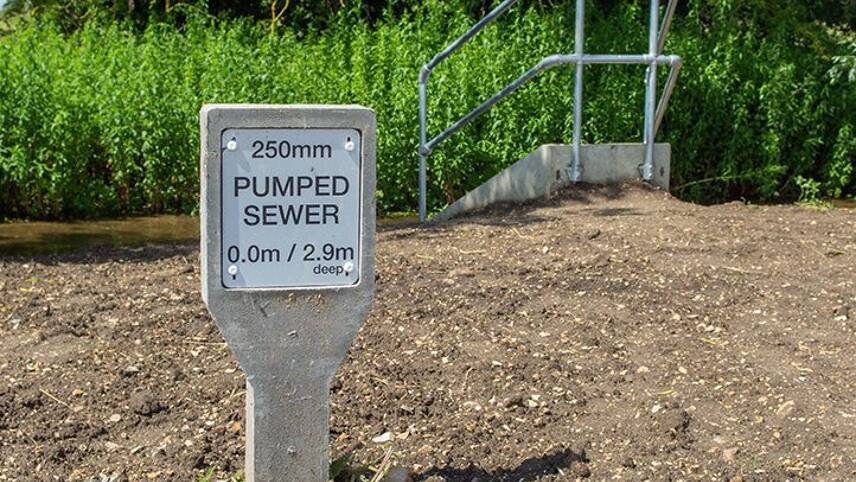Register for free and continue reading
Join our growing army of changemakers and get unlimited access to our premium content

The EAC published recommendations following extensive consultations
The Environmental Audit Committee (EAC) has called for a major overhaul of regulatory interest and processes on water quality, with a focus on increased monitoring and enforcement.
Data from the Environment Agency (EA) has revealed that water companies discharged raw sewage into UK waterways more than 400,000 times in 2020 alone, with storm overflow pipes pumping sewage for more than 3.1m hours. The EAC believes that these discharges may be much higher than what has been reported to the EA.
The EAC warns that wastewater from sewage treatment and sewer overflows is currently preventing 36% of UK water bodies from achieving a “good” ecological status. Currently, just 14% of English rivers have reached “good” status. However, it is not just sewage that is polluting the waters, agriculture and plastic pollution from motorways are also contributing, according to the EAC.
EAC Chairman, Rt Hon Philip Dunne MP, said: “Rivers are the arteries of nature and must be protected. Our inquiry has uncovered multiple failures in the monitoring, governance and enforcement on water quality. For too long, the Government, regulators and the water industry have allowed a Victorian sewerage system to buckle under increasing pressure.
“Today, we are calling for these relevant bodies to come together and develop a system fit for the future. Monitoring regimes need to be reviewed, enforcement needs to be ramped up, and even public awareness needs boosting on what can and cannot be poured down drains or flushed down the toilet. So many emerging pollutants are being missed by inadequate and insufficient monitoring, and court actions against polluters have fallen dramatically.”
Water causes
The EAC warns that a “dangerous chemical cocktail” is forming in UK waters due to underinvestment and “multiple failures” from the Government and EA to enforce standards and practices.
Intensive livestock and poultry farming is putting pressure on particular catchments, such as that flowing into the River Wye, while plastic particulates worn away from brakes and tyres are getting washed into watercourses from busy roads.
Additionally, fats, oils and greases are clogging up drainage systems and meshing with single-use plastics that create “wet wipe reefs” in rivers. These materials are forming “Fatbergs” that are costing companies and their customers in the region of £100m a year.
Regulatory need
The EAC is calling for a renewed focus on water quality at a political level. As part of an inquiry into the area, the Committee was told that there was a lack of political will to act on water, prior to the passing of the Environment Act. The EAC was told that successive governments, water companies and regulators would turn blind eyes to the dumping of sewage and other pollutants in rivers.
The Committee is also calling for a change in cross-sector collaboration that ultimately aims to restore rivers and protect biodiversity. MPs claim that better enforcement from Ofwat and the EA is a must, and that Ofwat should examine steps to limiting raw sewage discharge. One recommendation from the EAC is for Ofwat to look at how it can limit the payment of bonuses to water company executives until the dumping of raw sewage is drastically rolled back.
The EAC is also calling for the recently introduced Office for Environmental Protection (OEP) to focus on water quality and use its powers to improve both regulatory frameworks and enforcement.
Late last year, MPs voted to block a number of amendments to the Environment Bill voted for by the House of Lords, including greater provisions for ancient woodland protection in planning frameworks; restrictions on ministerial powers to weaken habitat-related regulations; a legal duty on water companies to reduce raw sewage discharges into rivers and moves to strengthen the independence of the OEP.
Commenting on the EAC findings a Water UK spokesperson said: “We support the Committee’s urgent call for action to improve the health of England’s rivers. Many of the recommendations mirror proposals set out in our recent 21st Century Rivers report, which calls for Government, regulators, water companies, agriculture, and other sectors to come together and create a comprehensive national plan to transform our rivers.
“Now is the time to have an honest conversation about whether the current approach is adequate for addressing the challenges faced by our environment, which is why we particularly support the Committee’s call for regulators to take a long-term focus. The Committee is also right to emphasise the need for further investment to eliminate harm from storm overflows and treatment works. Water companies want to invest more and are pushing the Government to encourage the economic regulator, Ofwat, to enable this increased spending over the next decade.”
Matt Mace


Please login or Register to leave a comment.